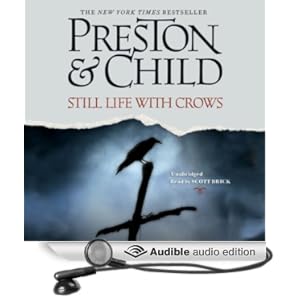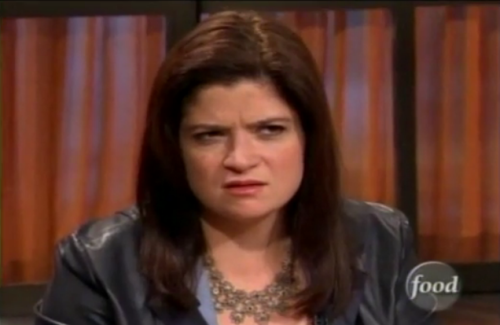-by David J. Schmidt
-Japanese folk saying. Translation: “Rice must be cooked just right—neither too hard nor too soft. This is the manifestation of perfection.”
I’ll be frank with you, dear reader—I am an avid collector of bad literature.
I am a literary crap enthusiast. Like the young Joseph Smith in upstate New York, I take my proverbial shovel in hand and head out into the woods, searching for those golden tablets of text that are a cut above the rest. There is a unique quality to exceptionally bad writing: if it crosses a certain threshold, it suddenly becomes immensely fun to read. I feel that the scale of “good to bad writing” is not a continuum; rather, it is horseshoe shaped, with good and bad nearly meeting at the bottom. Some books are so bad that they are able to jump that synapse and cross over into Awesome Territory.
One such book was a little gem I stumbled upon last year titled “
Leave the Wine Glass Lay”. A friend of mine met the author in person—he came to her unannounced, like the Angel Moroni, to tell her about his literary opus. The author assured my friend, with a self-important air about him, that his book would be “the next big thing”. She went online and checked the book’s description on Amazon—and then immediately sent me an e-mail marked urgent, with a link and the comment, “
you have to buy this book”.
As soon as I read the Amazon synopsis of “
Leave the Wine Glass Lay”, I knew that I had struck gold.
Three things stuck out to me:
1.
The modifier “all kinds of” is used twice in the first paragraph of the description. The main character, a powerful wizard, has “all kinds of magical powers” and encounters “all kinds of characters”.
2.
By the second paragraph, we already have a full fledged cluster-eff of pronouns.
He befriends a 10-yr-old child, Laden, who finds the Evil Wine Glass at the seashore and invites him and his family to dinner along with his friends.
Whose family? Whose friends? Which
he is
who? Zuh?
3.
The author went to the trouble of writing a quote of recommendation for himself. Unfortunately, he couldn’t think of anybody to attribute this quote to. All we have, at the end of the book’s description, is this:
This story is unlike any other and author Jackie O Brien is truly unique by writing this story.
I should note: that quote is also on the back cover of the book itself. In the print version, however, the author was nice enough to add some quotation marks—but still no person to whom the compliment is attributed. The punctuation itself appears to beg of us, “Come on, guys, honest, somebody said that. Look—there’s punctuation marks around it!”
That’s right, dear reader—I purchased this book.
And it was worth every penny. It truly was so bad that it became amazing. Where to begin? Well, how about at the beginning. Seriously, the first sentence of the book already has major verb tense confusion:
I am the wizard Translucence and the year was 1503.
The punctuation is devil-may-care and haphazard, as are the spelling and grammar. “Its” and “it’s” are used interchangeably, as are “they’re”, “there” and “their”. At several points throughout the book, the author appears to have forgotten what he’d already said—or lost the ability to scroll up on his word processor—and inserts sudden interjections like, “oh, but did I mention”, and “oh, I forgot to say such-and-such”. Some words are inexplicably capitalized, only to be written lowercase later in the text.
The descriptive language is just as avant garde in nature. This is one of my favorite quotes:
Another enchantment, I instantly thought as the veins on my neck puffed in horror.
I have no idea what “neck veins puffing in horror” looks like, but I imagine something akin to a bullfrog when threatened.
And the story itself. Oh, dear, sweet Lord, the story. It jumps around, introducing plot developments suddenly and without warning. The entire thing appears to have been written in one sitting, the author overcome with the white heat of drunken inspiration. “
Leave the Wine Glass Lay” truly jumps the gap between good and bad, moving with Nietzschean boldness into that netherworld beyond good and evil.
But oh, did I mention that “
Leave the Wine Glass Lay” wasn’t the initial book I came here to discuss, dear reader? No, the book that truly makes my neck veins puff up in horror is none other than “
Fifty Shades of Grey”.
* * * *
The above-quoted Japanese proverb illustrates the ideal of perfection—something that walks that delicate balance between hard and soft, undercooked and overcooked—in Japanese culture. It is my opinion that the same principle applies to something that is of poor quality. For writing to be truly bad, it can’t be overly bad, like Jackie O Brien’s book of wizardly adventures. His book is
too bad to really even be considered bad, in my opinion. Nay, I believe that truly bad writing must be
just bad enough to frustrate the reader without amusing him/her.
Enter “
Fifty Shades of Grey”, stage left.
The most infuriating thing about the entire “Fifty Shades” trilogy is that it walks that delicate, Japanese line of balance and equilibrium. It is not nearly good enough to be worth reading. However, it is not quite bad enough to be entertaining. “Fifty Shades” is just bad enough to be
truly bad writing—drab, poorly constructed, unsophisticated. Its badness is, well—grey.
I am reminded of M. Scott Peck’s description of evil as “gloomy, monotonous, barren, boring”. [
People of the Lie, p. 264.] And of C. S. Lewis’s depiction of Hell as a gray, drizzly English city with nothing particularly interesting about it. True evil is not exciting or interesting—it is uncreative and pedestrian.
Perhaps more infuriating than its mundane badness, however, is the fact that people pay money for “Fifty Shades”. At least “
Leave the Wine Glass Lay” has been left “laying” on the shelf. E. L. James’s erotica stories have become a cultural phenomenon, sparking a mini-industry of merchandise, knock-offs, parodies, late night talk show references, and even involving the participation of Gilbert Gottfried.
Well, if you can’t beat them, join them.
I decided to climb on board the sticky, dubiously-stained bandwagon of the “Fifty Shades” phenomenon and write a satirical work of my own. My book, “Pirates of the Danube”, is not a direct parody of the S & M trilogy per se, however; rather, it is an homage to an entire genre of rambling romance-erotica tales. It is part “Fifty Shades”, part Harlequin romance, part “Leave the Wine Glass Lay”, and 100% awesome.
And it will be available for free this weekend. See below for details.
-David J. Schmidt
*One note on the Japanese proverb quoted above:
I wasn’t able to find the actual folk proverb, so I just inserted a quote from the opening credits to the Japanese cartoon
Dragonball Z instead. But I swear, that proverb about properly cooked rice exists somewhere in Japan—a real Japanese man told it to me once, while he shared a bottle of vodka with me in southern Russia. But that’s a different story for a different time.

David J. Schmidt is the author of the satirical romance novel, “Pirates of the Danube”, as well as its sequel, “The Baron Rides Again”. The former, “
Pirates of the Danube”, will be available on the Kindle store for
free this Passover / Palm Sunday weekend, March 23 and 24.
Schmidt has received various recognitions for his charitable contributions toward the preservation of Peyronie’s Disease. In 2004, he was granted knighthood by the Basque Republic, becoming Sir David J. Schmidt for the following three years. The title was stripped from him by the United Nations Council on Fallacious Royal Families in 2007. Schmidt lives with his beloved ex-wife of 14 years, his two cats, and his indentured servant. He can be reached via his blog,
www.donguero.blogspot.com or via email at
thebaroninsideyou@gmail.com
See this link to find the book on Kindle:




































